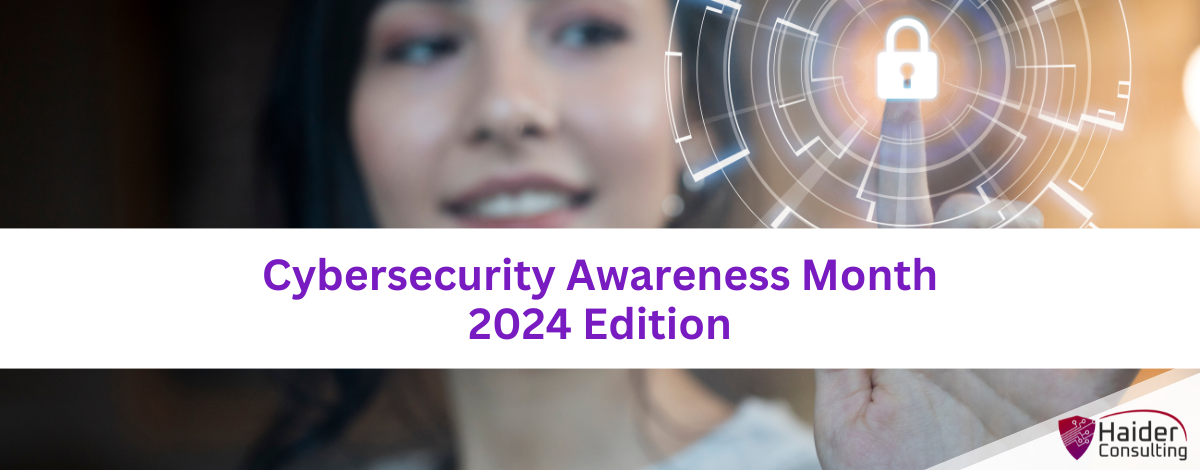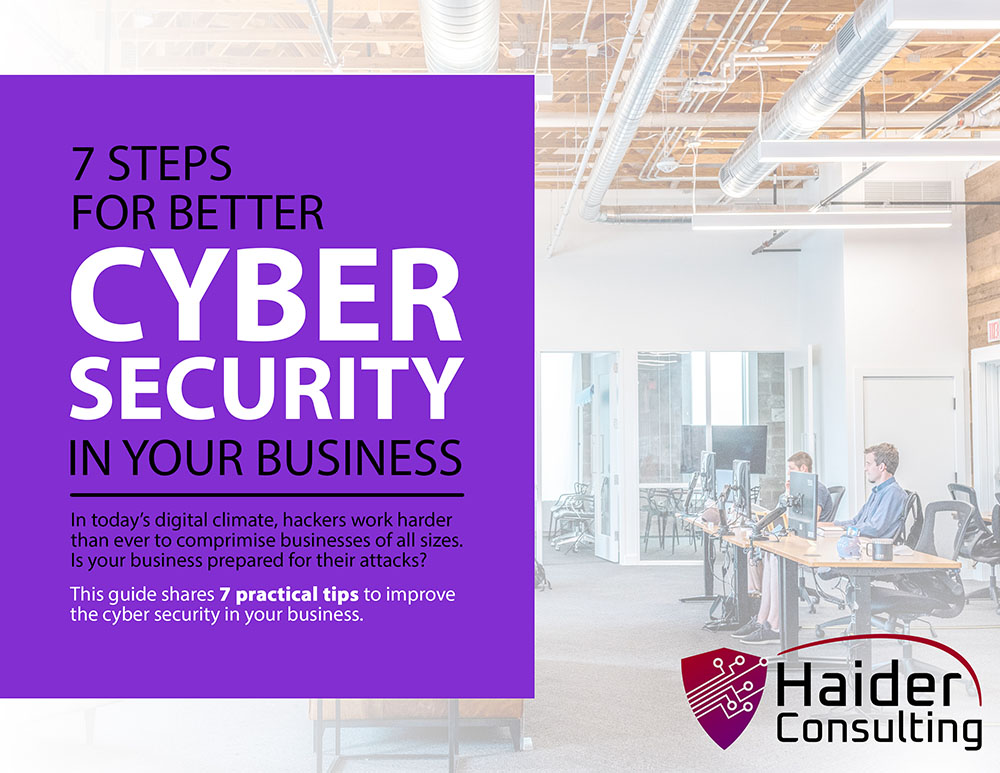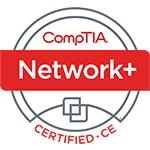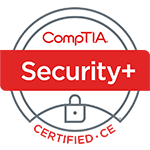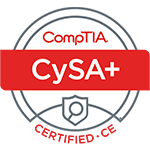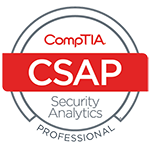Technology is advancing every day, and with that comes the need for us to be more aware and protective of our sensitive information. While cybersecurity can seem overwhelming, it’s not just the IT team’s responsibility. We all have a role to play in keeping both our organization’s and our personal data safe and secure.
Guess what? October is Cybersecurity Awareness Month!
This annual initiative is all about promoting awareness and education in cybersecurity. It aims to empower individuals and organizations with the knowledge and resources they need to understand threats and how to fend them off.
CAM (Cyber Security Awareness Month) started in 2004 as a U.S. initiative but has quickly gained traction worldwide! It’s led by the National Cyber Security Alliance (NCSA) and the Cybersecurity Infrastructure Security Agency (CISA), bringing together government agencies, industry leaders, and cybersecurity experts with a common goal: promoting safe online practices to protect our data from hackers.
This Year’s Theme
For CAM’s 21st year, the theme is Secure Our World, encouraging us all to take four easy steps each day to ensure our online safety:
- Understanding the benefits and dispelling the myths behind password managers and their ease of use
- Turning on multi-factor authentication on both personal and business devices
- Recognizing and reporting phishing
- Installing updates on a regular basis, and turning on automated updates
1. Strong Passwords & Password Managers
Passwords are still incredibly important when it comes to keeping our online accounts safe. Even with all the new biometric tech out there, passwords are still the go-to. It’s critical to encourage your team to create strong, unique passwords for each account and steer clear of easy-to-guess stuff like birthdays or names.
To make things easier, companies can set some solid password rules. This way, a strong password is required before anyone can access the system. For example, you might have a policy that says passwords should be:
- At least 12 characters long
- Include at least 1 uppercase letter
- Include at least 1 lowercase letter
- Contain at least 1 number
- Have at least one symbol/special character
This, plus the use of a password manager, helps to keep data out of the hands of the wrong people.
2. Enabling Multi-Factor Authentication (MFA)
Setting up Multi-Factor Authentication (MFA) is a fantastic way to boost security for all your logins. Most of the time, a hacker won’t be able to get into an account that has MFA enabled—even if they have the password.
Microsoft even says that MFA can block 99.9% of attempted account breaches. With those kinds of numbers, it’s clear that everyone should be using it—and on every single login they have.
3. Updating Software
Using outdated software can open the door for cybercriminals to exploit vulnerabilities. That’s why it’s so important to keep your operating systems, applications, and firmware up to date. Regular updates help make sure you have the latest security patches in place.
A great way to stay on top of this is by automating updates. Companies can use endpoint device managers to take care of updates across all employee devices. This software makes the whole process easier and enhances endpoint security.
4. Recognizing and Reporting Phishing
Phishing attacks are a big concern when it comes to cyber threats. It’s essential to train your team on how to spot phishing emails, suspicious links, and unexpected attachments. Encourage everyone to double-check the sender’s email address and never share sensitive information unless they’re sure about who they’re dealing with.
It’s also crucial to remind employees that phishing isn’t just limited to email. In fact, there’s been a notable rise in phishing attempts through text messages and even direct messages on social media.
Another key part of staying safe is knowing how to report phishing attempts to your IT team. When someone reports a phishing email, it helps alert others and keeps the whole team informed. Plus, the IT team needs to know so they can address the threat. Make sure everyone knows how to report a suspicious email when they come across one!
We Can Help You Put the Best Cyber Hygiene Practices in Place
Cybersecurity Awareness Month (CAM) is a great chance to really focus on the importance of cybersecurity and the essential practices that keep us safe. Building a culture of awareness within your team can make a huge difference—it’s what separates vulnerability from resilience.
If you’re looking for some guidance to create a more secure and resilient future, our team of experts is here to help you get started with the basics. Once you have those down, your organization will be both more productive and secure.
Don’t hesitate to reach out and schedule a chat with us today!
